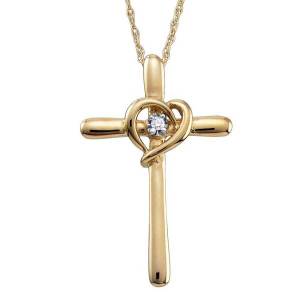 If you told me in 2012 that my five-year plan would include graduating from a Christian college, joining a church, singing on a worship team, teaching at a Christian school, and staying in Wisconsin, I would’ve laughed and told you, “*bleep* off.”
If you told me in 2012 that my five-year plan would include graduating from a Christian college, joining a church, singing on a worship team, teaching at a Christian school, and staying in Wisconsin, I would’ve laughed and told you, “*bleep* off.”
Well, not quite; I’ve always been too introverted for that, but my mind would’ve retorted that answer even if my face put on a fake smile.
If you told me in 2012 that my five-year plan would lead me into a horrible job situation, a busted relationship, a lawsuit, and debt, that I’d miss the opportunity to say good-bye to my loving, beautiful, favorite grandmother, that I’d spend sleepless nights wrestling with real nightmares and surfacing family issues, I would’ve neatly executed the suicide plans which had stewed in my mind since I was 13 – only this time my attempt would’ve been successful.
If you told me in 2012 that I would someday be gifted with the undercurrent of joy that connects all of life, I would’ve stuck a pin in your hopeful optimism. I’m a vehement pessimist.
I remember looking in a mirror when I was 17 and strangely seeing myself for real. This exhausted, wounded half-woman believing she bravely carried her assorted sin collection, feeling obligated to hide all the sin collections others branded on her.

Those who know me closely know I attended a Christian college as a last resort, a sort of final chance for God to do something with me since I was so cast away.
Few people know that the weeks before meeting God with my older sister in the college cafeteria were rough. Our family dynamics were wildly changing as ancient skeletons fell out of closets. I wasn’t even supposed to return to college for the spring semester, but my dad, who’d been laid off, insisted on our college educations, tossing our offers of family sacrifice aside. The clan of edgy kids I ran with fall semester hadn’t returned. I was taking 21 credits and working a lot. My sister and I fought … in public. The campus library, no less. Quietest place ever, stupidest location for a fight.
It was over quick; I pushed her down the stairs, I think. I was so blind with rage I remember little beyond running and running. Not very fast, but very far. It wouldn’t be the first or last time I ran off campus. Bless my poor dorm sup…
Few people know that my sister cried out to God that evening, frustrated with trying to draw me to herself and God for comfort and life. I didn’t know this part of the story until later. She was exhausted because we were supposed to be knit together wrestling through all the issues side-by-side, and instead we were each alone.
“I give up honestly.” She confessed to God. “I’m just done with her.”
And yet, the tired, done woman who’d given up sat with the angry, running sinner in the dining hall two nights later saying words that pleased the God who hovered over us and between us and in us.
And that God opened my mind and came in, blowing me, my sin collections, and my small, trampled picture of life away with grace, mercy, forgiveness, love, and a supernatural, arresting presence.
I applaud the kitchen staff who valued my soul more than their bedtimes. They let us stay in the dining hall well beyond closing hours. I remember my brother-in-law-to-be getting in his car and speeding to campus to be the first to know and give me a big hug, welcoming me into another, better family. I can hear the voices of all my dorm sisters when I walked in late to devotions, interrupting the conversation with,
“Dude, I just met God tonight!”
They were thrilled, hugging me like a sister.
I can see the first professor my sister and I told lighting up and setting aside time to have lunch with us so he could hear the details.
Dear God, bless all the sanctified individuals who lined up to stay in my life – who still are in my life – despite my fumbling, half-formed theology, fatal dedication to logic, countless struggles, and lists of questions … they are priceless.
I’m five. It takes a village to raise a child, and today I’d like to thank my village.



 I only knew four things about God, but I had a feeling that the quantity of things I’d learn about God would grow inexhaustibly.
I only knew four things about God, but I had a feeling that the quantity of things I’d learn about God would grow inexhaustibly.

